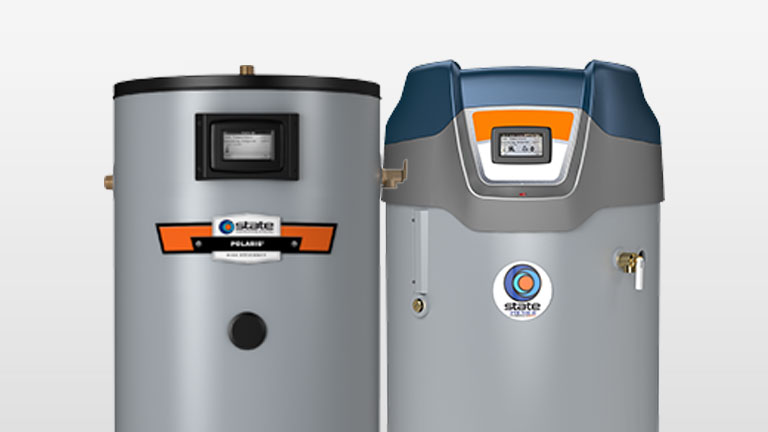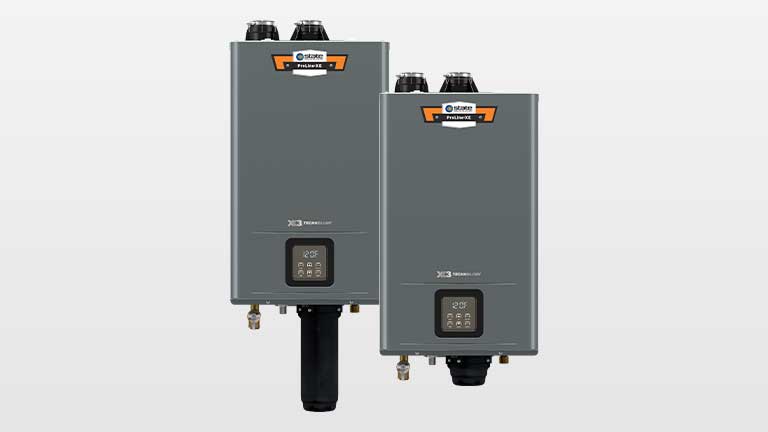
Residential Gas Water Heaters
State Water Heaters has a variety of natural gas and propane water heaters for all types of residential homes.
Federal Tax Credits & Local Utility Rebates
Get up to $600 in Federal Tax Credits, plus local utility rebates may be in your area when you upgrade to a gas tankless water heater!
*Gas water heaters with UEF of 0.82 or higher OR with a thermal efficiency of at least 90%. Local utility rebates available in limited geographical areas. For information on the Federal Tax Credit, go to: energystar.gov. Check with your tax advisor for applicability. Offer details and expiration may vary. See Rebate Center for details.
What Our Customers Are Saying
Benefits of Gas Water Heaters

Easy Installation
State's gas water heaters are designed for easy installation and come with a variety of venting options to accommodate any home. However, State Water Heaters strongly recommends consulting a professional installer to ensure proper installation and safe operation.
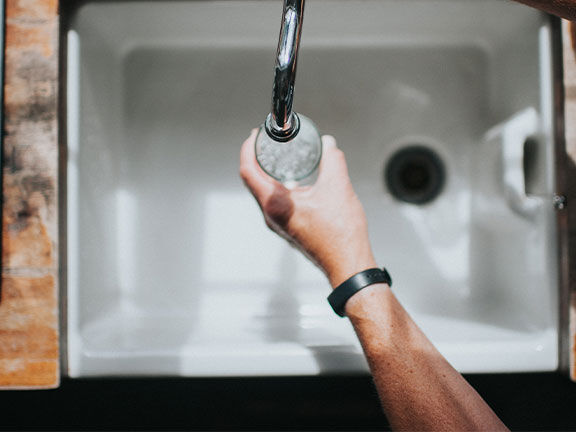
Energy Efficient
State water heaters provide a wide range of BTUs, offering energy-efficient options to meet your gas water heater requirements.

Long Lasting
State's gas water heaters are constructed for durability, backed by limited warranties ranging from 6 to 10 years, ensuring your home enjoys reliable hot water for years to come.
How it Works
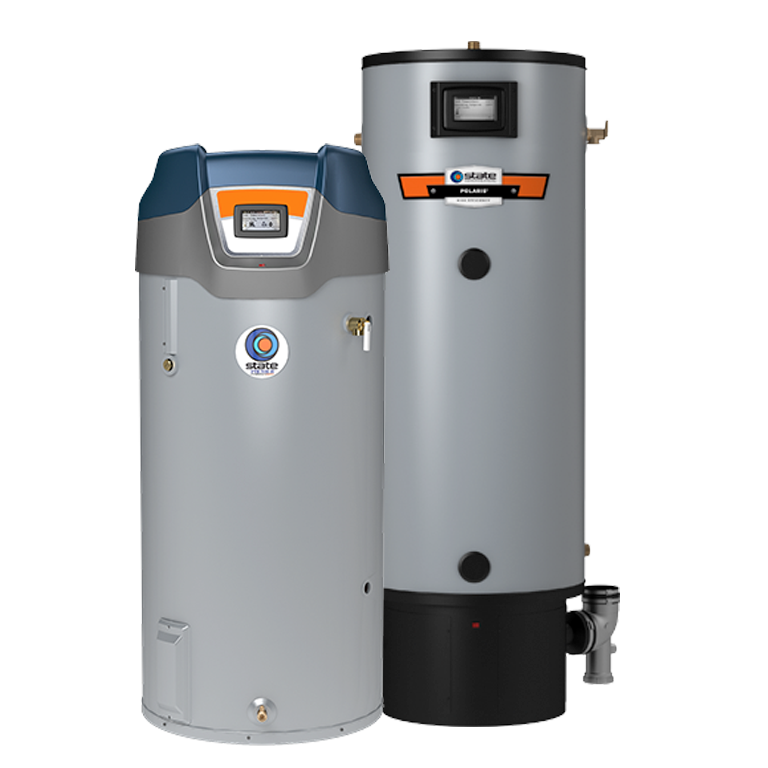
State's gas water heaters operate by burning either natural gas or Liquid Propane (LP) to heat water. All models feature a thermostat/gas control to set the desired temperature. When a hot water fixture is activated, hot water is delivered from the water heater through the home's hot water lines. Depending on the model, water is either pre-heated inside a water tank and maintained at a set temperature for immediate use or rapidly heated on demand by a tankless unit to conserve energy.
Regardless of whether you choose a gas tank or gas tankless water heater, exhaust gasses are produced during the heating process. These gasses must be vented outdoors, and different types of gas heaters have specific venting requirements. Learn more about the various vent configurations available.
A licensed plumbing contractor can help you select a water heater that suits your needs and aligns with the ventilation capabilities of your home. Additionally, you can utilize the State Water Heaters online Residential Water Heater Selector to determine the most suitable water heater for your home.
Still Have Questions?
When choosing between an electric or gas water heater, consider the following factors:
Type of power in your home. Most homes can accommodate an electric water heater, but not all are hooked up to natural gas.
Initial purchase price. Gas water heaters are usually more expensive than electric water heaters and require a bigger upfront investment because of gas pipe configuration and venting.
Long-term operating costs. Natural gas is cheaper than electricity in many regions, costing you less over time. Both electric and gas water heaters come in energy-efficient models to help reduce monthly bills.
Gas water heaters use combustion to generate heat, heating water faster than electric models. They boast a higher recovery rate, replenishing the water supply in a tank more quickly compared to a similarly sized electric water heater. Natural gas may also be cheaper than electricity in some areas of the United States, translating into lower monthly operating costs.
Gas water heaters burn natural gas or liquid propane and must be vented outdoors to safely release combustion fumes. Several venting options are available, depending on the model of the water heater, the space you're installing it in and the configuration of your home. With atmospheric ventilation, combustion gasses rise through an exhaust pipe to a flue on the roof. Direct vent water heaters use side wall vents, drawing air in for combustion and venting fumes outside. Gas water heaters with power ventilation connect to an exterior wall with horizontal or vertical piping, blowing exhaust outside using an electric fan. Learn more about venting configurations.
Water heaters in the late stages of life can show signs of reduced performance. Water heaters can also become less efficient, taking longer to heat water or delivering water that isn't as hot as usual. Some of these issues can be fixed, but it may be more cost-effective to replace an aging water heater that's continually having problems and ensure it doesn't suddenly stop working.
Our traditional gas tank water heaters have limited warranties that range between 6-10 years, while tankless gas water heaters come with 15-year limited warranties. A water heater's lifespan depends on how often you use it, the quality of the groundwater and how regularly you service and maintain the water heater. State's line of gas water heaters comes with limited warranties to protect your purchase.
Gas Tank vs. Gas Tankless
Take a closer look at the advantages of each type of water heater.

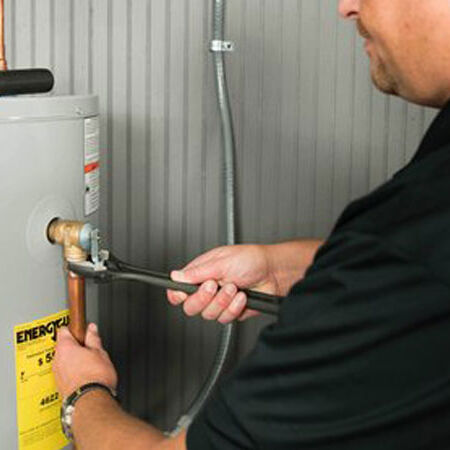
Find A Local Water Heater Pro
State water heaters are professionally installed by local independent contractors.
Featured Products
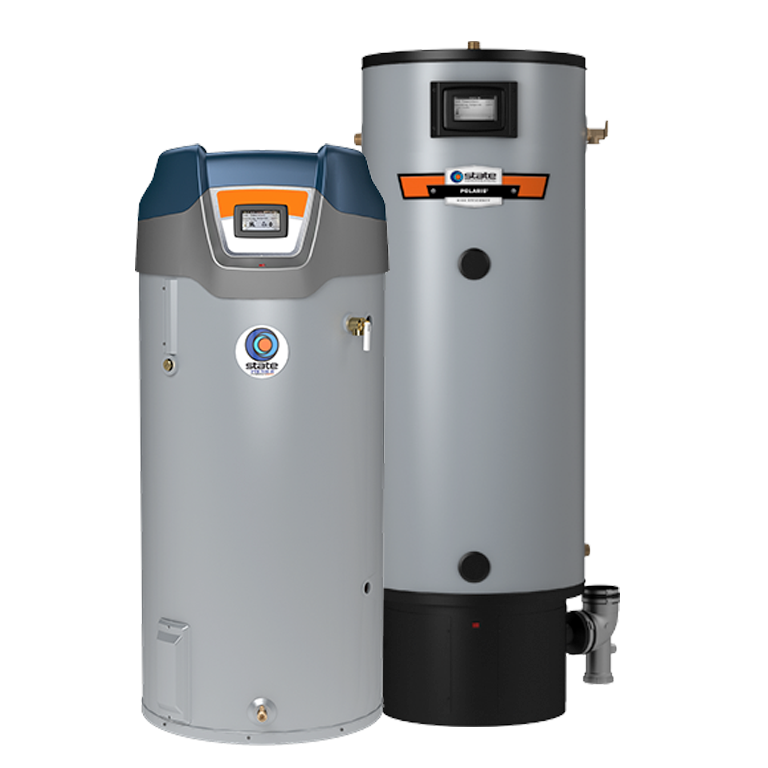
High-Efficiency Gas Tank Water Heaters
Explore our range of high-efficiency condensing gas tank water heaters, meticulously engineered with a focus on energy efficiency.
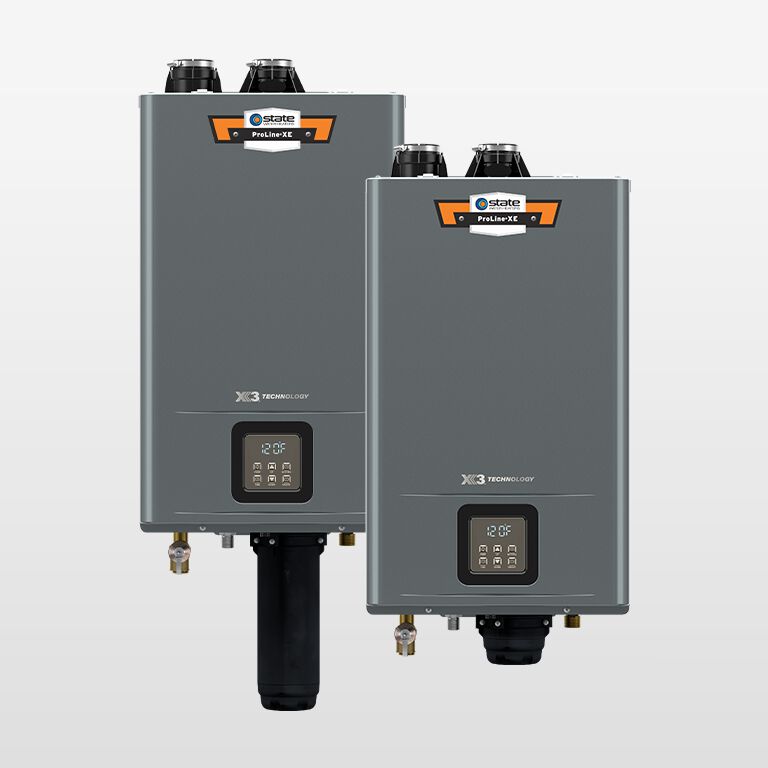
High-Efficiency Gas Tankless Water Heaters
Unveil our collection of high-efficiency condensing gas tankless water heaters, meticulously engineered with a focus on energy efficiency.
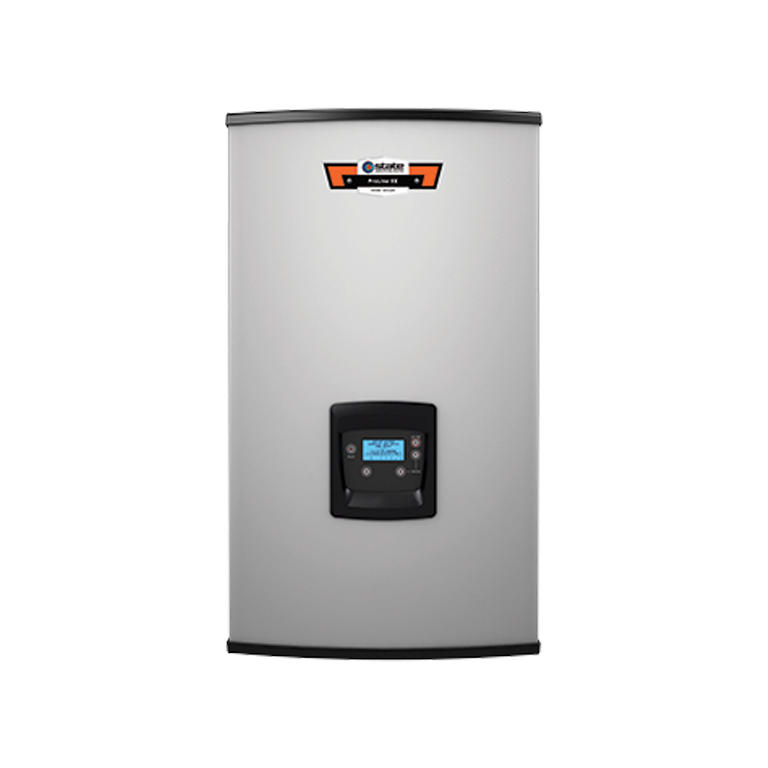
Combi Boiler Water Heaters
State's Combi Boilers offer space and cost-saving solutions by delivering both space heating and hot water from a single unit.
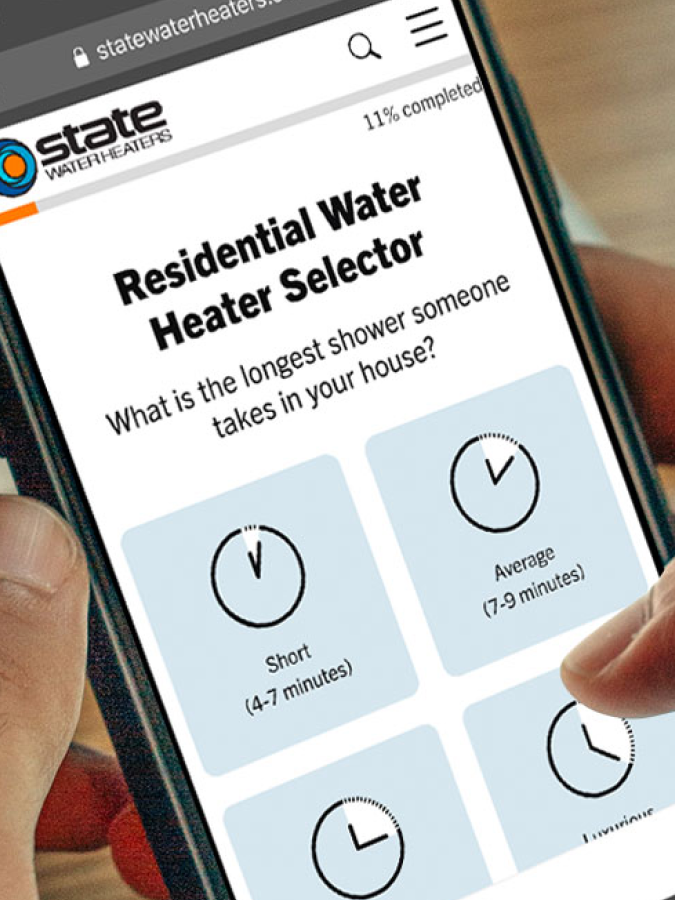
Not sure which product is right for you?
Take our water heater selector quiz to find the correct water heater for your home.









